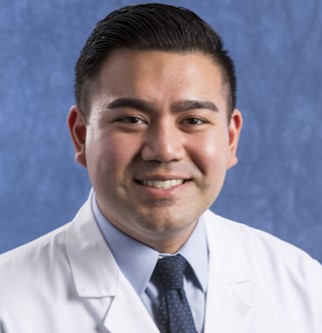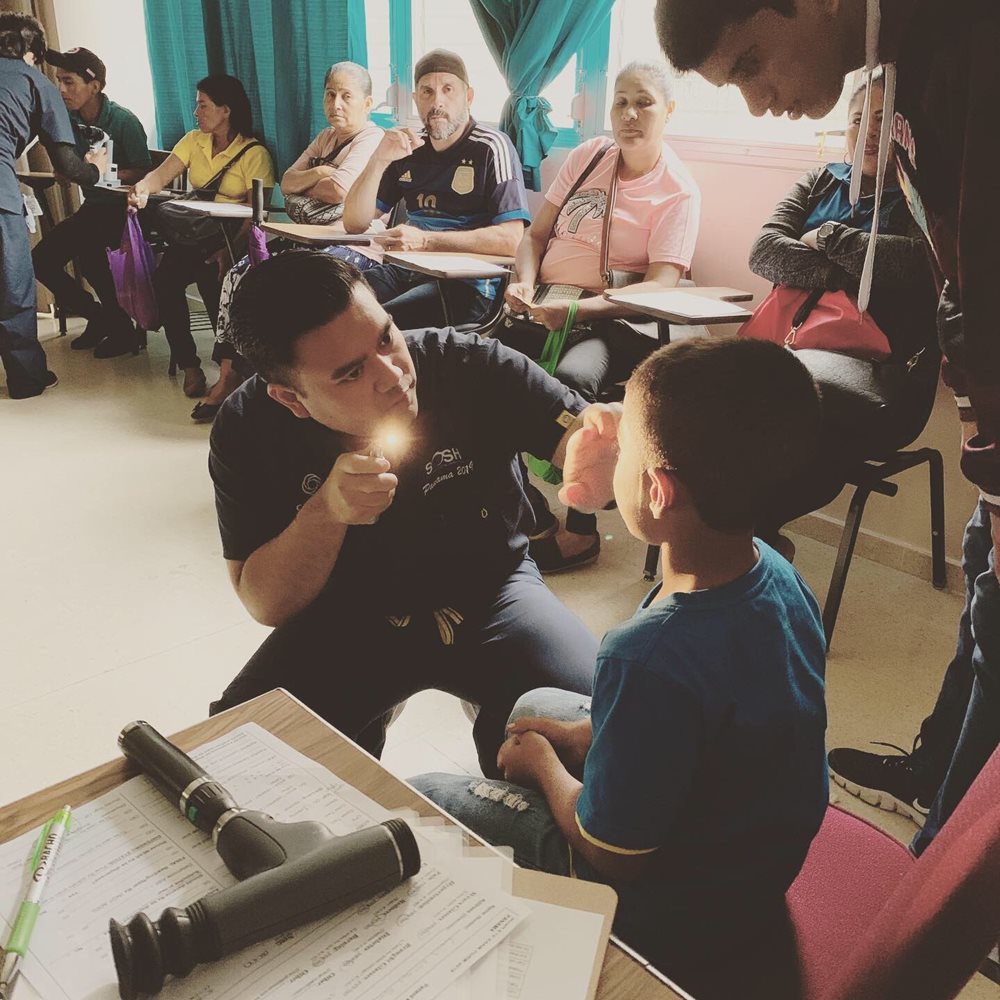Faculty Focus: Dr. Laine Higa
 One aspect quarantine has presented to Laine Higa, OD, is a chance to explore and cultivate his love for cooking and baking. He’s tried new recipes for bagels, cakes, cookies and scones.
One aspect quarantine has presented to Laine Higa, OD, is a chance to explore and cultivate his love for cooking and baking. He’s tried new recipes for bagels, cakes, cookies and scones.
And, as tempting as it might be overindulging in his finished creations, Dr. Higa has managed not to put on any weight. In fact, he’s even dropped a few pounds during quarantine.
“Maybe it’s because you’re a little more cognizant about what you’re eating because you’re not eating out as much,” he said. “But what I realized was that cooking and baking helped pass the time. When you cook and bake, you then have to clean up and then you have to grocery shop. It gave me a task.”
Dr. Higa, assistant professor at the University’s Pennsylvania College of Optometry (PCO), teaches both in the traditional program and the scholars program and works in The Eye Institute with students and residents.
Like all faculty and students, the months since COVID-19 invaded the United States have forced everyone to make adjustments. “It’s nice working from home, but in some aspects, there really isn’t much down time,” said Dr. Higa. “The internet, email, phone calls, and texts make you always ‘available.’ It’s not necessarily a show-up-to-work busy. The commute is not there, the getting ready is not there. It’s just a different kind of busy.”

One of the challenges facing Dr. Higa and other faculty members is trying to engage the students and connect with them virtually. “Some of the time spent in face-to-face sessions is sharing what you’ve done that week, talking about things other than school,” he said. “But we don’t always know what our students are going through, whether it be someone affected by COVID-19 or the Black Lives Matter movement, which was a big deal as well. A lot of students felt unsafe depending on where they lived. Trying to connect and making the students feel like they can trust someone and that they have an ally in you. That’s not necessarily the dialogue we have with students normally in a traditional face-to-face setting.”
Dr. Higa, who completed his residency at The Eye Institute/PCO in 2015 and joined the faculty soon thereafter, graduated with a Bachelor of Science in Molecular/Cellular Biology from Pacific University in Forest Grove, Oregon, and earned his Doctor of Optometry at Illinois College of Optometry in Chicago.
He is also the advisor for the University’s Students in Optometric Service to Humanity (SOSH) organization, founded at PCO in 1969 and designed to bring needed medical eye care to people living in countries with poverty unlike any seen in North America.
Although those mission trips — to places like Haiti and Panama — have been curtailed for the moment, they provide invaluable experiences for Salus students. “The benefits of those trips are multifaceted in the sense that the students get to see what it’s like to have a different healthcare infrastructure. That’s the reason why we’re there,” said Dr. Higa, who has supervised the past four mission trips. “It also shows how fruitful their knowledge and their expertise can and will be in the future. In addition, these trips teach students to be a global citizen in terms of being grateful for what they have and not taking the basic things for granted.”
 He said that since joining Salus PCO, the faculty and students at PCO have been welcoming, friendly and willing to advance the profession of optometry.
He said that since joining Salus PCO, the faculty and students at PCO have been welcoming, friendly and willing to advance the profession of optometry.
“PCO really does feel like a family, in the sense that we all work together and look out for each other, primarily in clinic, because that’s where I work,” said Dr. Higa. “You really need to be a team to see patients and educate the students and I feel like we all work together to make that happen. It’s nice to have different people, whether it be walks of life or cultures, to work with to give you different perspectives. In both optometry and life, there are a lot of good mentors within the faculty that help some of the junior faculty with issues or cases. Everyone is very helpful in that respect.”